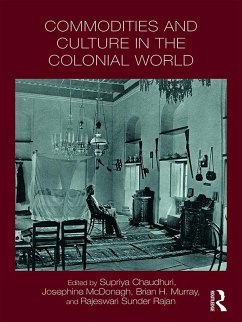
Empire and Leprosy in Colonial Bengal (eBook, PDF)
Versandkostenfrei!
Sofort per Download lieferbar
42,95 €
inkl. MwSt.
Weitere Ausgaben:

PAYBACK Punkte
21 °P sammeln!
Leprosy, widely mentioned in different religious texts and ancient scriptures, is the oldest scourge of humankind. Cases of leprosy continue to be found across the world as the most crucial health problem, especially in India and Brazil. There are a few maladies that eventually turn into social disquiets, and leprosy is undoubtedly one of them. This book traces the dynamics of the interface between colonial policy on leprosy and religion, science and society in Bengal from the mid-nineteenth to the first half of the twentieth centuries. It explores how the idea of 'degeneration' and the 'desol...
Leprosy, widely mentioned in different religious texts and ancient scriptures, is the oldest scourge of humankind. Cases of leprosy continue to be found across the world as the most crucial health problem, especially in India and Brazil. There are a few maladies that eventually turn into social disquiets, and leprosy is undoubtedly one of them. This book traces the dynamics of the interface between colonial policy on leprosy and religion, science and society in Bengal from the mid-nineteenth to the first half of the twentieth centuries. It explores how the idea of 'degeneration' and the 'desolates' shaped the colonial legality of segregating 'lepers' in Indian society. The author also delves into the treatments of leprosy that were often transfigured from 'original' English texts, written by American or British medical professionals, into Bengali.
Rich in archival resources, this book is an essential read for scholars and researchers of history, Indian history, public health, social history, medical humanities, medical history and colonial history.
Rich in archival resources, this book is an essential read for scholars and researchers of history, Indian history, public health, social history, medical humanities, medical history and colonial history.
Dieser Download kann aus rechtlichen Gründen nur mit Rechnungsadresse in A, B, BG, CY, CZ, D, DK, EW, E, FIN, F, GR, HR, H, IRL, I, LT, L, LR, M, NL, PL, P, R, S, SLO, SK ausgeliefert werden.













